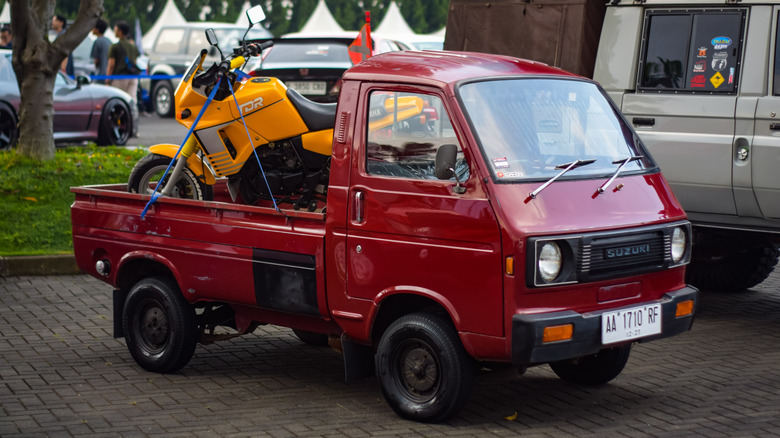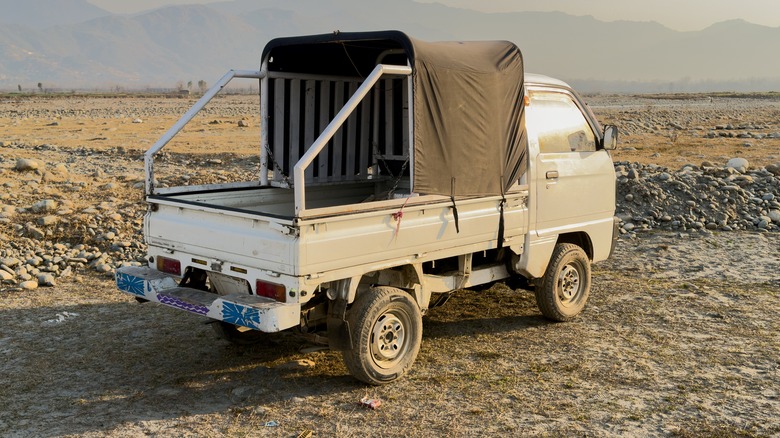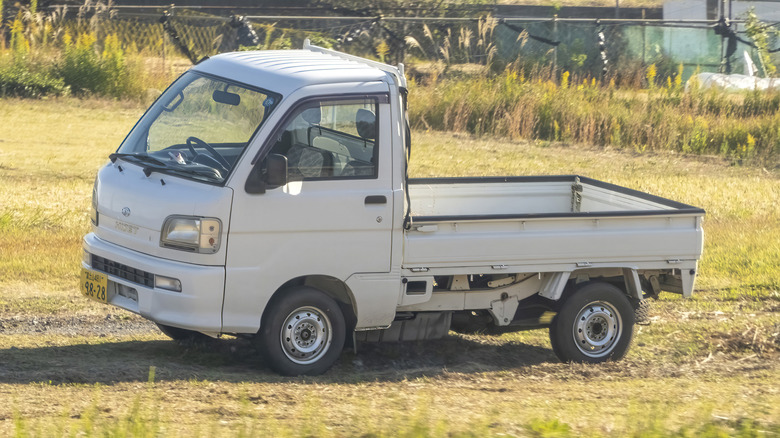Are Kei Trucks Considered Classic Cars? Here's What You Need To Know
Even the best Japanese kei trucks are getting old, and as more of these compact workhorses pass the 25-year mark, owners and buyers want to know: are they considered classic cars? The answer depends on how you define "classic."
Legally, yes. Many kei trucks qualify for classic or antique registration in the U.S. based on age. That opens doors for easier importing and, sometimes, cheaper insurance. But while they may be "classic" on paper, kei trucks don't always get the same respect as traditional classic cars from insurers and state regulators. They were built for practical use, not as icons of design or performance, which makes their status in collector circles debatable.
Still, kei trucks have started to earn respect for their quirkiness and nostalgic value, especially with younger enthusiasts looking for something affordable and different. Only recently have they started to earn recognition at car shows and auctions. For instance, at the Illinois Railway Museum's 33rd Annual Vintage Transport Extravaganza, a participant noted having the only kei vehicle among a vast array of classic cars, indicating their rarity at such gatherings. A 1997 Honda Acty was also featured at a Mecum auction in Houston, signaling that they're beginning to gain traction with mainstream collectors.
As this new wave of interest shapes car culture, it's also reshaping the standards for what qualifies as a classic. Let's take a closer look at where kei trucks actually stand — on paper, in the market, and in the eyes of collectors and insurers.
Legally, age makes many kei trucks classics
In the U.S., whether a car is considered "classic" – even an underappreciated classic car — usually comes down to one thing: age. In most states, a car that's 25 years old or older qualifies as a classic or antique for registration purposes. Once a car is 25 years old, the U.S. generally lets it in without requiring it to meet modern safety or emissions standards. This is how kei trucks like the Suzuki Carry, Honda Acty, and Daihatsu Hijet started coming in legally.
But states vary on how they treat these vehicles once they're imported. Some allow them on public roads with a classic plate. Others, such as Pennsylvania or Maine, may restrict their use due to safety concerns. So yes, kei trucks can be considered classic by age alone, but age doesn't automatically translate to full rights. And because kei trucks were never crash-tested in the U.S., they're sometimes excluded from regular driving regardless of vintage status. Still, if you're registering it in a lenient state, you can get classic plates for your 1990s kei truck and call it an antique.
The classic-car community is still on the fence
Even if a kei truck qualifies legally, that doesn't mean it gets a warm welcome at the local Cars & Coffee. The U.S. classic car scene has historically revolved around cool muscle cars, vintage European sports cars, and high-end oddities. Kei trucks are grunts — tiny, boxy, and built more for hauling gravel — which puts them outside the traditional collector mold.
But there's change happening. Kei trucks have found a niche among younger collectors and offbeat drivers who value their charm and mod potential. Online communities like r/keitruck and the keitruckclub Facebook group are full of owners sharing lifted builds, camper conversions, and restorations. You'll also find them featured at Japanese Domestic Market events and off-road meetups, though they're still rare at traditional concours shows.
Valuation is another sticking point. Most kei trucks still change hands for under $10,000, which makes them appealing to hobbyists but limits their recognition in the classic investment market. Hagerty, the go-to for classic car insurance and valuation, does insure some kei trucks, but usually on a case-by-case basis rather than offering them blanket recognition.
One user on MiniTruckTalk mentioned paying $120 per year for a 1990 Subaru Sambar with a declared value of $6,000. Others, however, have been denied coverage if the truck is to be used as a daily driver. State Farm, Progressive, and Liberty are other options, but coverage varies widely and is often denied. As a result, kei truck owners often have to shop around and advocate for their vehicle to be recognized.
So are kei trucks "classic" in the traditional sense? Not quite. But their age, growing community, and unique backstory are pushing them into the conversation.


